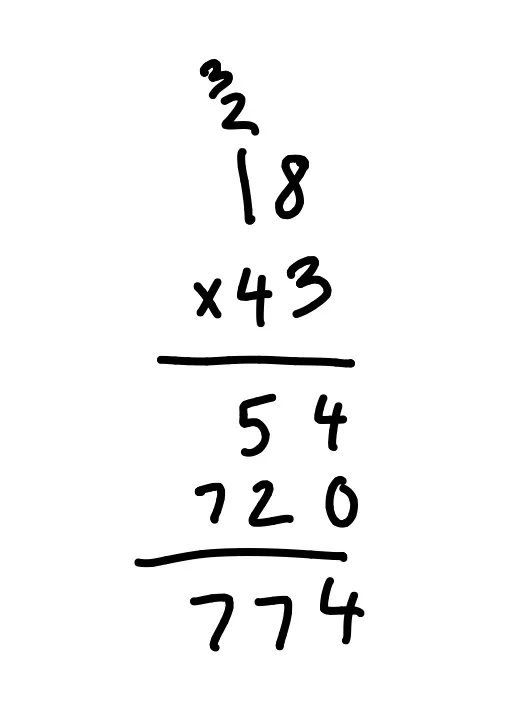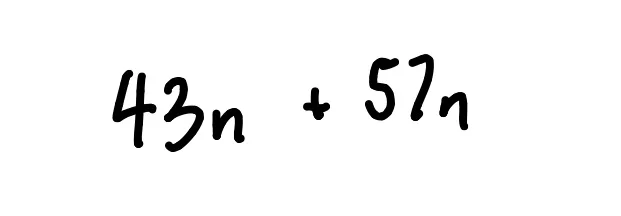Hard work is the easy way out
Depending on your climate, you could do mulch and shrubbery, pebbles and cacti, or pine straw and monkey grass.
Challenging problems aren’t the ones that require a lot of labor. They are the ones that require thinking.
It is a huge mistake to focus on labor and think we’re doing such hard work. Maybe we’re actually being lazy by not coming up with a cleverer strategy for avoiding all that work.
We can use math as good metaphor to explain this idea. The brilliant Prealgebra book from The Art of Problem Solving teaches students to think algebraically — that is, strategically — about math, even no variables are present.
For instance, the student may encounter a situation in which they are asked to simplify and expression like 18 x 43 + 18 x 57.
Many a student will dutifully stack 18 on top of 43 and execute the standard algorithm…
…And then do the same for 18 x 57. I’m too lazy to do it for you, frankly.
Because there’s a cleverer, quicker way.
We can remember that multiplication is simply repeated addition.
We can think of 18 as “n” and observe that we actually have:
Which means that we have 100 “n’s,” or 100n.
That’s 100 x 18, which is 1,800.
In effect, we’ve used the distributive property to solve it:
A problem that seemed kind of ugly and laborious is actually one we can solve in our heads if we think about it in a strategic way.
Good strategic thinking may look like laziness. The difference is in the outcome. Laziness has no positive outcome, but good strategic thinking does. When our thinking is on point, we’ve been effective and efficient even if (especially if) we did less work and took less time to achieve the desired result.
Too often, students and employees are trained to do extra for the sake of doing extra — to go above and beyond in order to show that they are someone who is willing to go above and beyond. But if there is no difference in the end result, we’ve just wasted a lot of time and effort. Not only that, we’ve strengthened the bad habit of believing that we’re “safe” if we’re doing hard work for its own sake. If you catch me with a broom and give me a nod of approval — even if the floor was already spotless when I started — and I will learn that what matters is that I appear busy. Praise me for trying, and we both avoid the scary process of failing and receiving feedback.
Our work can be more interesting than that. Questioning the status quo and revisiting assumptions can lead to unexpected and satisfying solutions — and give us more time and energy to tackle the next intriguing problem.
Or we can just kick back and be lazy for real. We earned it!



